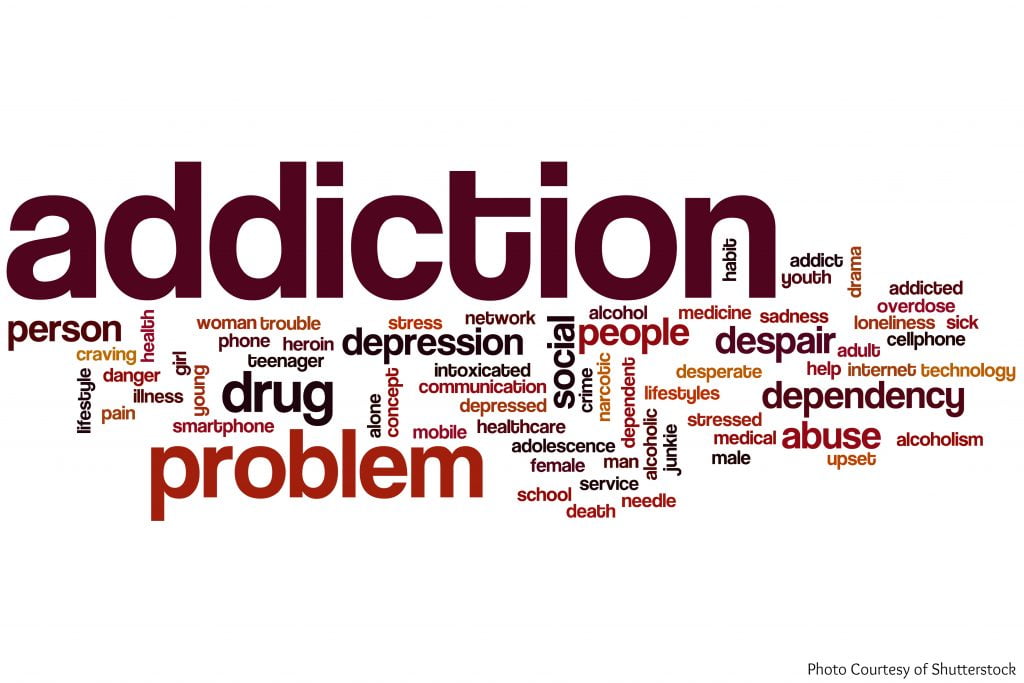
What’s the definition of addiction?
An addiction is a chronic dysfunction of the brain system that involves reward, motivation, and memory. It’s about the way your body craves a substance or behavior, especially if it causes a compulsive or obsessive pursuit of “reward” and lack of concern over consequences.
Someone experiencing an addiction will:
- be unable stay away from the substance or stop the addictive behavior
- display a lack of self-control
- have an increased desire for the substance or behavior
- dismiss how their behavior may be causing problems
- lack an emotional response
Over time, addictions can seriously interfere with your daily life. People experiencing addiction are also prone to cycles of relapse and remission. This means they may cycle between intense and mild use. Despite these cycles, addictions will typically worsen over time. They can lead to permanent health complications and serious consequences like bankruptcy.
That’s why it’s important for anyone who is experiencing addiction to seek help. Call 800-622-4357 for confidential and free treatment referral information, if you or someone you know has an addiction. This number is for The Substance Abuse and Mental Health Services Administration (SAMHSA). They’ll be able to provide more information, including guidance on prevention and mental and substance use disorders.
What are the types?
According to U.K. charity Action on Addiction, 1 in 3 people in the world have an addiction of some kind. Addiction can come in the form of any substance or behavior.
The most well-known and serious addiction is to drugs and alcohol. Nearly 1 in 10 Americans have an addiction to both. Of the people with a drug addiction, more than two-thirds also abuse alcohol.
The most common drug addictions are:
Substances or behaviors that can trigger addiction
In 2014, Addiction.com, a website devoted to helping those with addiction, listed the top 10 types of addictions. Besides nicotine, drugs, and alcohol, other common addictions include:
- coffee or caffeine
- gambling
- anger, as a coping strategy
- food
- technology
- sex
- work
Technology, sex, and work addictions are not recognized as addictions by the American Psychiatric Association in their most recent edition of the Diagnostic and Statistical Manual of Mental Disorders.
Some habits or social behaviors look like addiction. But in the case of an addiction, a person will typically react negatively when they don’t get their “reward.” For example, someone addicted to coffee can experience physical and psychological withdrawal symptoms such as severe headaches and irritability.
What are the signs?
Most signs of addiction relate to a person’s impaired ability to maintain self-control. This includes changes that are:
- social, such as seeking out situations that encourage a substance or behavior
- behavioral, such increased secrecy
- health related, such as insomnia or memory loss
- related to personality
Someone with an addition won’t stop their behavior, even if they recognize the problems the addiction is causing. In some cases, they’ll also display a lack of control, like using more than intended.
Some behavior and emotional changes associated with addiction include:
- unrealistic or poor assessment of the pros and cons associated with using substances or behaviors
- blaming other factors or people for their problems
- increased levels of anxiety, depression, and sadness
- increased sensitivity and more severe reactions to stress
- trouble identifying feelings
- trouble telling the difference between feelings and the physical sensations of one’s emotions
What causes addiction?
Addictive substances and behaviors can create a pleasurable “high” that’s physical and psychological. You’ll typically use more of certain substances or engage in behaviors longer to achieve the same high again. Over time, the addiction becomes difficult to stop.
The brain
Some people may try a substance or behavior and never approach it again, while others become addicted. This is partially due to the brain’s frontal lobes. The frontal lobe allows a person to delay feelings of reward or gratification. In addiction, the frontal lobe malfunctions and gratification is immediate.
Additional areas of the brain may also play a role in addiction. The anterior cingulate cortex and the nucleus accumbens, which is associated with pleasurable sensations, can increase a person’s response when exposed to addictive substances and behaviors.
Other possible causes of addiction include chemical imbalances in the brain and mental disorders such as schizophrenia or bipolar disorder. These disorders can lead to coping strategies that become addictions.
Early exposure
Experts believe that repeated and early exposure to addictive substances and behaviors play a significant role. Genetics also increase the likelihood of an addiction by about 50 percent, according to the American Society of Addiction Medicine.
But just because addiction runs in the family does not necessarily mean a person will develop one.
Environment and culture also play a role in how a person responds to a substance or behavior. A lack or disruption in a person’s social support system can lead to substance or behavioral addiction. Traumatic experiences that affect coping abilities can also lead to addictive behaviors.
What are the stages?
Addiction will often play out in stages. Your brain and body’s reactions at early stages of addiction are different from reactions during the later stages.
The four stages of addiction are:
- experimentation: uses or engages out of curiosity
- social or regular: uses or engages in social situations or for social reasons
- problem or risk: uses or engages in an extreme way with disregard for consequences
- dependency: uses or engages in a behavior on a daily basis, or several times per day, despite possible negative consequences
What are the complications?
Addiction that’s left untreated can lead to long-term consequences. These consequences can be:
- physical, such as heart disease, HIV/AIDS, and neurological damage
- psychological and emotional, such as anxiety, stress, and depression
- social, such as jail and damaged relationships
- economic, such as bankruptcy and debt
Different substances and behaviors have different effects on a person’s health. Serious complications can cause health concerns or social situations to result in the end of a life.
How do you treat addiction?
All types of addiction are treatable. The best plans are comprehensive, as addiction often affects many areas of life. Treatments will focus on helping you or the person you know stop seeking and engaging in their addiction.
Common therapies include:
- medications, for mental disorders such as depression or schizophrenia
- psychotherapy, including behavioral, talk, and group therapies
- medical services, to help treat serious complications of addiction, like withdrawal during detox
- addiction case manager, to help coordinate and check ongoing treatment
- inpatient addiction treatment
- self-help and support groups
You can also visit your primary care doctor for an evaluation. The type of treatment a doctor recommends depends on the severity and stage of the addiction. With early stages of addiction, a doctor may recommend medication and therapy. Later stages may benefit from inpatient addiction treatment in a controlled setting.
Where can you get support for addiction?
Overcoming addiction is a long journey. Support can go a long way in making the recovery process more successful. Many organizations can help, depending on the type of addiction.
These include:
- Al-Anon
- Alcoholics Anonymous (AA)
- Cocaine Anonymous (CA)
- Crystal Meth Anonymous (CMA)
- Gamblers Anonymous (GA)
- Marijuana Anonymous (MA)
- Narcotics Anonymous (NA)
- Sex Addicts Anonymous (SAA)
- Faces and Voices of Recovery
- National Institute on Alcoholism and Alcohol Abuse
- National Institute on Drug Abuse
- Smart Recovery
- Women for Sobriety
- Community Anti-Drug Coalition of America
These organizations can help connect you with support groups, such as:
- local community groups
- online forums
- addiction information and experts
- treatment plans
A strong social support system is important during recovery. Letting your friends, family, and those closest to you know about your treatment plan can help you keep on track and avoid triggers.
If you or someone you know has an addiction, call 800-622-4357 for confidential and free treatment referral information from SAMHSA. Seek emergency care if necessary, especially if they’ve had suicidal thoughts or actions.
Disclaimer: We at Prepare for Change (PFC) bring you information that is not offered by the mainstream news, and therefore may seem controversial. The opinions, views, statements, and/or information we present are not necessarily promoted, endorsed, espoused, or agreed to by Prepare for Change, its leadership Council, members, those who work with PFC, or those who read its content. However, they are hopefully provocative. Please use discernment! Use logical thinking, your own intuition and your own connection with Source, Spirit and Natural Laws to help you determine what is true and what is not. By sharing information and seeding dialogue, it is our goal to raise consciousness and awareness of higher truths to free us from enslavement of the matrix in this material realm.
 EN
EN FR
FR

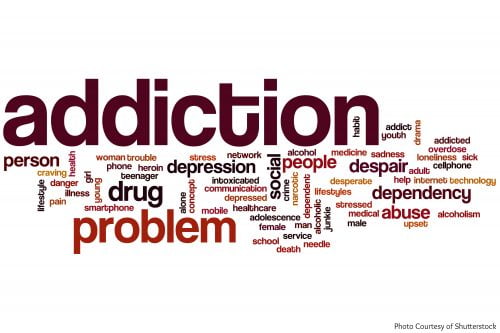

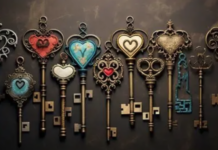
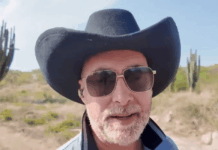




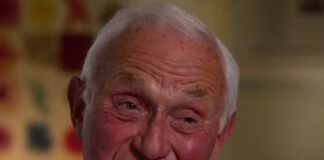

















Hello, Are you or love one suffering with substance abuse?, we are here to help…For a confidential conversation with one of our trained professionals, Call Now: (213) 322-1979
Next and end
On m a empoisonne trois fois
A la premiere j ai cru a un mauvais gout dans la bouche
Resultat
15j avec des muscles bloque tous comme ma respiration et le coeur
A la deuxieme je comprends que ce n est pad un accident et a la troisieme je cesse de sortir
Sans compter que l on m empeche de dormir
Ma vie n est plus privee et le harcelement et constant
Concernant les voix dans la tete en ce moment meme je suis en pleine campagne et ne souffre pas de ces symptomes
La preuve qu ils sont induits
Je cherche maintenant une petite maison loin du tumultes et des agressions devenu omnipresente
L endroit ou je vis devrait etre detruit tellement il est malsaint
Pb le francais
Victoire a la lumiere
Many people lack the courage to take the first step in admitting the addiction. The deprogramming and decompression starts within as there are many components to addiction. Until one is healed within, there is no cure. Everyone is addicted to something. The item left off your list is the ego. The addiction to the ego and all of its support systems such as drama, social media, gaming, etc. lend credence to the fact that this is the key factor to a lot of addictions. There is a lot of information about this at:
www.michellsgrace.com ❤️
its natural for a sentient being to want to be high…..
in this prison construct full of lies and deceptions,booby traps,false medicines,illegal laws all countries posess to various degress etc…..
almost all humanoid types on the earths surface are experiencing addictions maladies to various extents,in response to being violated in various ways at various levels(often the person has been unaware of being violated-the society brainwashing them into thinking its ok,when it was often illegal actually that some institution or law has unjustly negatively effected them…..
illegal power and control operating models/mentalities are the most destructive form of addictions in play here on the earths surface-the dark ones are plagued the most with these devastating energetic anomalies,distorting the sentient beings true nature…..
peoples feeling disempowered from being incarcerated (aka the earths surface) results enmass each day in the form of abusive workplaces,abusive streets,abusive institutions,abusive family settings,bullies of all sorts lashing out…..
the truth now being delivered is a major part of the antidote to an addictions plagued civilization…..as more accurate science,astro theology models are being presented enmass,real medicines etc are breaking through as part of the balancing…..
and the most powerful force is the goddess of love energies returning-delivering balance and harmony back to the construct…..
healing centres now manifesting will prove massively effective in bringing positive change to all-as old models of deceptions fade away…..
Hello
I m speak in french
You can translate
Thanks
L addiction provient d un desequilibre du a l incomprehension de ma situation et de la resistance qui en a suivi
Sans compter le karma qui s en rajoute
J ai vecu dans un appartement mal isole ou les voisins et hackers s en sont donnes a coeur joie
Je me suis reveille parfois la nuit avec des coups electrique dans la colonne vertebrale
Mes tortionnaire d ailleurs fanfaronne dans la rue
÷ ont lui a grille le cerveau
Quitte la terre sale extraterrestre fallait pas etre raciste
Je demenage et on amenage l appartement avec des prises haute tension
÷ a une station de bus pres de chez moi sachant que tous le village sait que mes voisins me harcelent
j entends
Tu n es plus qu un connard
Et cela n a jamais cesse depuis bien au contraire
Cela empire de jours en jours
J habites dans un endroit public dans un petit villagla rumeur suite a des intrusions a vite suivi
Resultat
On m a innonde ma chambre a coucher avec tous mes papiers
On m a coupe le chauffage en hiver et coupe l eau chaude en hiver et jette des crottes de chiens dans mon salon
Donc pas de schizophrenie mais le rrsultat de torture et le thc permet d amenuiser la douleurs
Quant au reste de l histoire
Elle suivra
Bientot
Pb